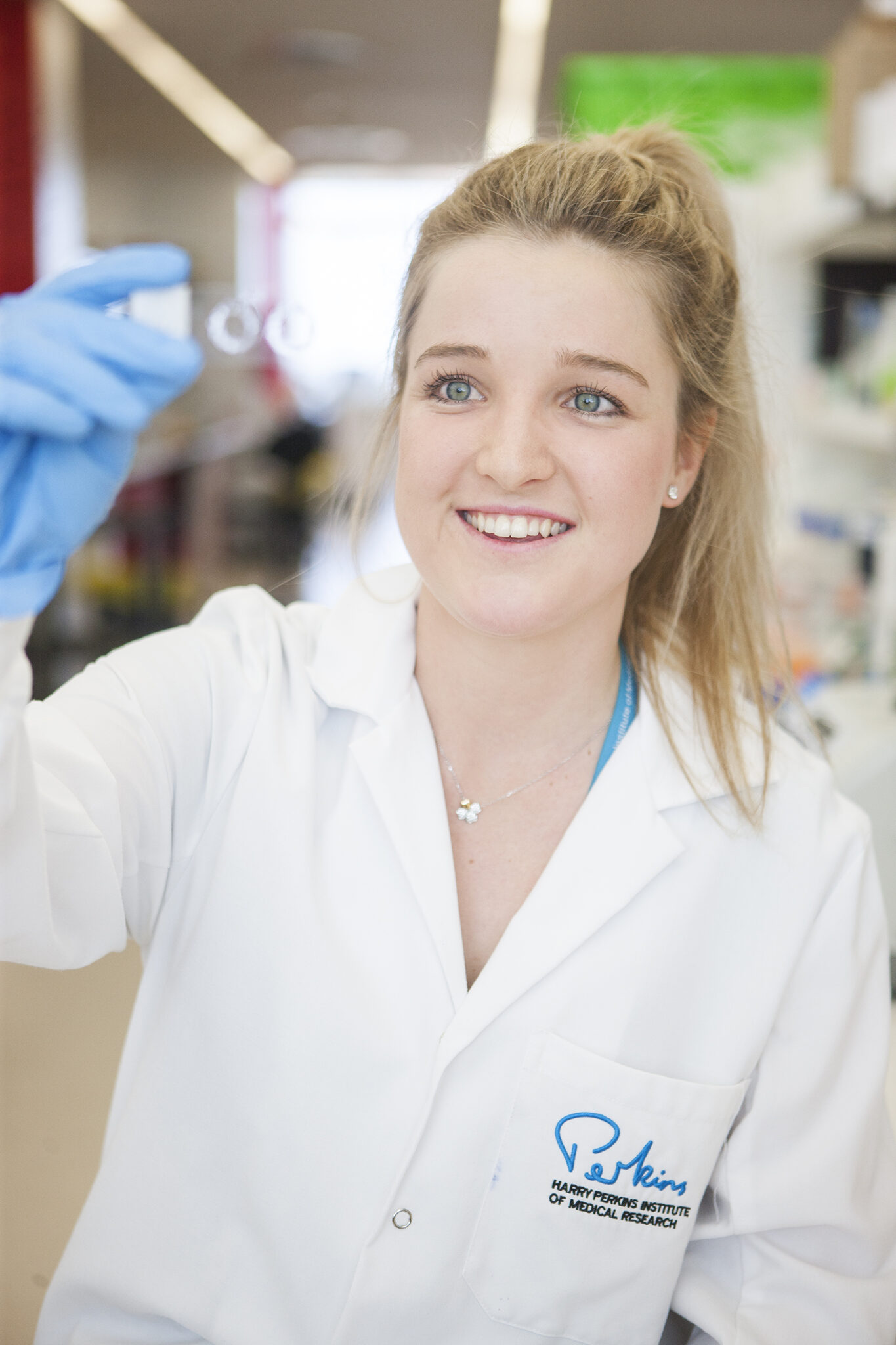
Research investigating the use of venom in bee stings to treat breast cancer has led to 24-year-old PhD student, Ciara Duffy, becoming a finalist for an Innovation Award in the WA Young Achiever Awards.
Ciara is in the third year of a PhD at the Harry Perkins Institute of Medical Research.
Her research, supported by the Cancer Council WA, is looking at the effects of honeybee venom as a potential treatment for aggressive breast cancer cells.
“I am passionate about breast cancer research because I have seen too many people near to me be affected by this disease, and I want to make a difference, particularly for patients with the very difficult to treat breast cancers such as triple-negative breast cancer,” Ms Duffy said.
While effective drugs have been developed for some of the breast cancer subtypes, there are no drugs clinically available which can specifically target triple-negative breast cancer cells.
“Previous research has found that bee venom can kill some cancer cells,” she said.
“My research is using Perth honeybees, which are some of the healthiest bees in the world due to our isolation, and I am testing the effects of Perth honeybee venom on various types of breast cancer.”
The venom used in her research is from about 90 bees housed at UWA, collected by putting the bees to sleep then manually removing the venom glands.
The venom is transported to the Harry Perkins Institute where it is applied to the breast cancer cells that Ciara has cultured from cell lines originally collected from patients.
Ms Duffy is investigating whether extracted honeybee venom can effectively kill the aggressive breast cancer cells, without harming the normal cells of the body.
